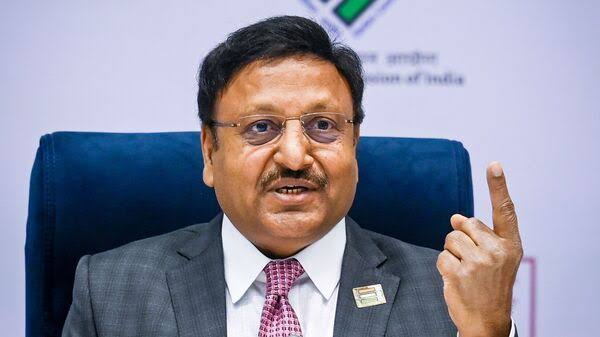Assembly elections are going to be held in Jammu & Kashmir after ten long years and five years after the erstwhile state lost its special status with the revocation of Article 370. The restive Union Territory will have a three-phase election that begins 8 September and ends 1 October along with a single-phase poll in Haryana, announced the Election Commission of India (ECI). However, the ECI has postponed the elections to the Maharashtra Assembly which were held along with Haryana in 2019 “due to security requirements for Jammu & Kashmir.” A lot has changed in Jammu & Kashmir since the last Assembly elections were held in November-December 2014.
Of the 87 seats that went to the polls then, the People’s Democratic Party (PDP) secured 28 seats, while the National Conference managed to win 15. The Bharatiya Janata Party (BJP) bagged 25 seats, and the Congress garnered 12 seats. The BJP stitched an alliance with the PDP and its leader Mufti Mohammad Sayeed was made the Chief Minister. Following Sayeed’s death in 2016, his daughter Mehbooba Mufti assumed leadership of the coalition government. However, the unnatural alliance couldn’t last the full term as the BJP withdrew support from the coalition in June 2018, leading to the imposition of governor’s rule and the dissolution of the state Assembly later that year. On 5 August, 2019, the Centre revoked the special status of Jammu and Kashmir and bifurcated the state into two Union Territories — Ladakh and Jammu and Kashmir. The trampling of civil liberties, including a ban on mobile internet services, in the wake of 5 August made international headlines.
Meanwhile, in 2022 a delimitation exercise was completed in the Union Territory, resulting in the addition of six seats to the Jammu division and one seat to the Kashmir division. Following this, the total number of Assembly seats increased to 114, with 24 seats allocated for regions under Pakistan-administered Kashmir. Of the remaining 90 seats, 43 are located in the Jammu division and 47 in Kashmir division. The Supreme Court while upholding the scrapping of J&K’s special status in a ruling on 11 December 2023 had directed the ECI to hold Assembly elections in the Union Territory by September 30, 2024. The announcement of the poll dates, within the Supreme Court deadline, is a welcome step in the path of restoring democracy in the region where past elections were often marred by bullets and boycotts.
However, in a distinct departure from the past, the recent Lok Sabha elections in March and April were held peacefully and also recorded the highest voter turnout in four decades at 58.58 per cent. All the major political parties, including the PDP and the National Conference, of the region have welcomed the elections as this democratic exercise is expected to shape the region’s future. Once the elections are over, the Union government is likely to start the process of restoring Jammu & Kashmir’s statehood, as announced by Union Home Minister Amit Shah earlier. Amid these positive developments there lies the perennial problem of cross-border terrorism, especially in the Jammu region which has seen an uptick in terror attacks in recent months. This indicates a trend reversal. Since Independence, the Kashmir Valley has been a focal point of terrorism in the region, whereas South Kashmir and Jammu regions have experienced relative peace and a lack of violence, particularly over the past two decades. Under these circumstances, the current spate of terror attacks on armed forces and targeted civilian killings poses a challenge to the administration. Nevertheless, with excitement mounting for the upcoming elections, political parties are preparing for a crucial turning point in the democratic landscape of Jammu & Kashmir that is going to hopefully have its bearing not just on regional peace, but also on geopolitical developments.







































